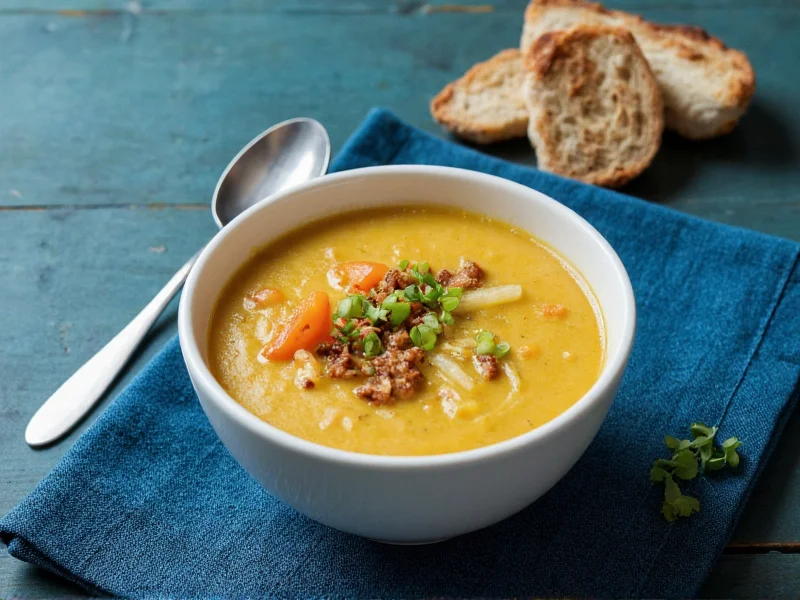Understanding the Fundamental Differences Between Ocean and Soup
When examining whether is the ocean a soup, we must first establish clear scientific definitions. Soup is a liquid food product typically made by combining ingredients like meat, vegetables, and broth in specific proportions, then heating them to create a consumable dish. The ocean, by contrast, is Earth's interconnected system of saline water bodies containing approximately 3.5% dissolved salts and minerals, along with organic matter, plankton, and other marine components.
Scientific Definitions: Ocean vs. Soup
To properly address why isn't the ocean classified as soup, let's examine the technical definitions:
| Characteristic | Ocean | Soup |
|---|---|---|
| Primary Composition | 96.5% water, 3.5% dissolved salts (mostly sodium chloride) | Water base with intentional ingredients (vegetables, meat, spices) |
| Formation Process | Natural geological processes over millions of years | Human preparation and cooking |
| Purpose | Natural ecosystem supporting marine life | Food for human consumption |
| Temperature Range | -2°C to 30°C (varies by location and depth) | Typically served between 60-100°C |
| Intentional Ingredients | None (naturally occurring elements) | Multiple deliberately selected components |
Why the Ocean Doesn't Meet Soup Criteria
Examining the ocean vs soup composition reveals several critical distinctions. Soup requires deliberate human intervention - ingredients are selected, prepared, combined in specific ratios, and cooked to achieve desired flavors and textures. The ocean formed through natural processes without any culinary intention. While both contain water and dissolved substances, the ocean lacks the intentional ingredient selection, preparation methods, and consumption purpose that define soup.
From a chemical perspective, is seawater considered a soup fails because soup typically contains complex organic compounds created through cooking processes (like Maillard reactions), while ocean water's composition results from mineral dissolution and biological activity without thermal processing. Soup has a limited shelf life due to microbial growth, whereas the ocean represents a stable, self-regulating ecosystem.
The Misconception Behind Is the Sea a Giant Soup
This question often arises from superficial similarities - both appear as liquid with suspended particles. However, this comparison overlooks fundamental differences in scale, complexity, and purpose. The ocean contains approximately 1.332 billion cubic kilometers of water, while even the largest soup pot holds mere liters. The ocean supports an entire planetary ecosystem, whereas soup serves as a single meal component.
Some might wonder can you technically call the ocean a soup based on dictionary definitions of soup as "a liquid dish." However, this oversimplification ignores culinary context and scientific precision. By that logic, any body of water could be called soup, which demonstrates why such broad interpretations lack scientific validity.
Interesting Scientific Perspectives
Marine chemists sometimes use culinary metaphors when describing ocean layers - referring to the "soup" of organic matter in deep waters. However, these are metaphorical expressions, not scientific classifications. The ocean's dissolved organic matter, while complex, differs fundamentally from the intentionally combined ingredients in culinary soup.
From a thermodynamic perspective, soup represents a system moving toward equilibrium through cooking, while the ocean maintains dynamic equilibrium through continuous energy input from the sun and geological processes. This fundamental difference in energy flow further distinguishes these two systems.
Practical Implications of the Distinction
Understanding the difference between soup and ocean water has practical importance. If oceans were soup, they would spoil rapidly due to bacterial growth. Instead, marine ecosystems have evolved sophisticated mechanisms to process organic matter without "spoiling" in the culinary sense. This distinction matters for fields like marine biology, environmental science, and even food safety regulations.











 浙公网安备
33010002000092号
浙公网安备
33010002000092号 浙B2-20120091-4
浙B2-20120091-4